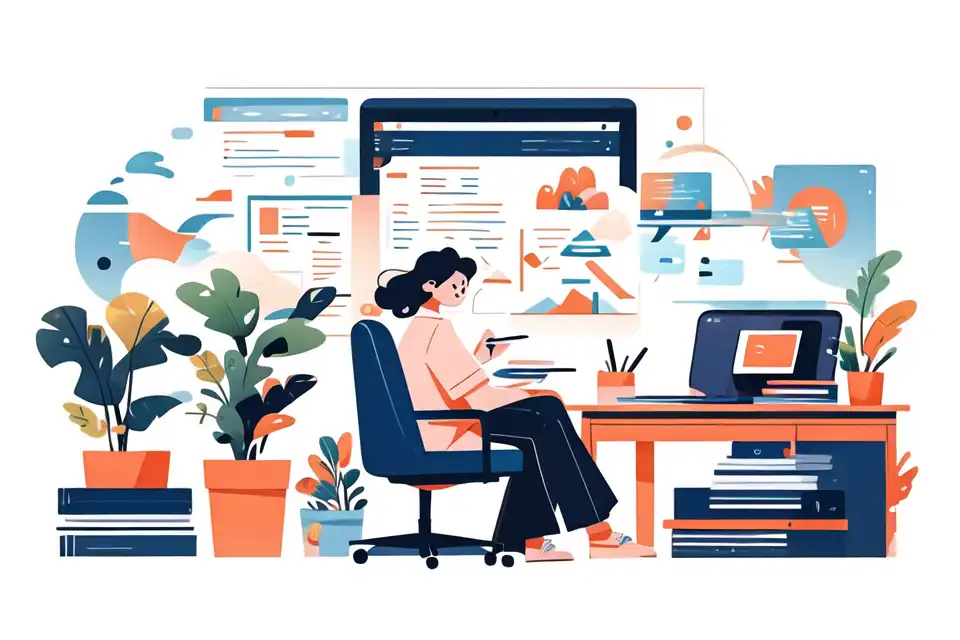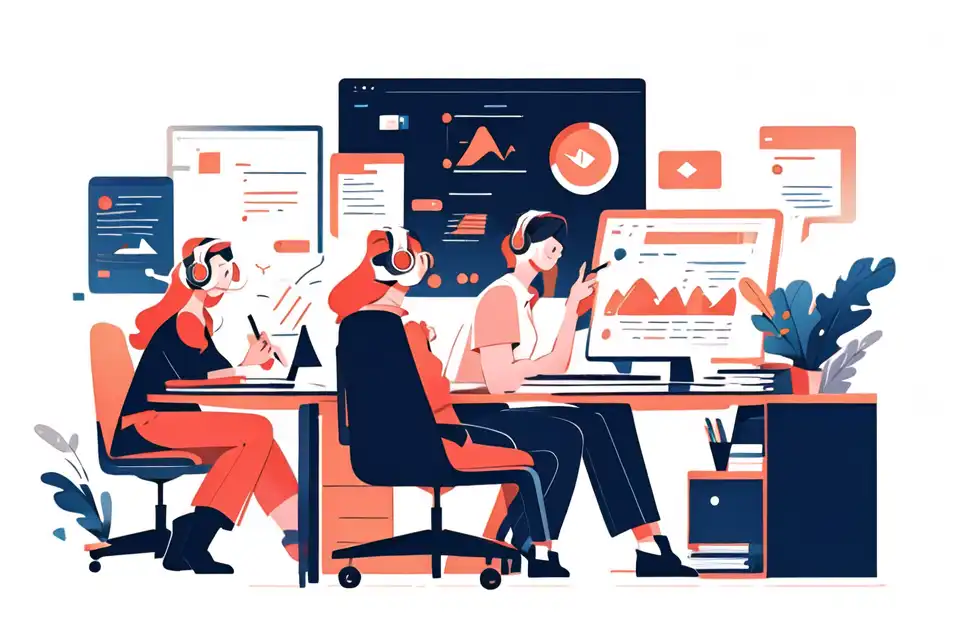How to Apologize for a Mistake at Work Professionally
Master the art of professional communication in business settings with expert guidance. Learn how to apologize for a mistake at work professionally.
Try Lark for Free
Apologizing for workplace errors is an essential aspect of maintaining healthy professional relationships. It reflects self-awareness, responsibility, and the desire to rectify one’s mistakes. The ability to apologize professionally can significantly impact one's reputation and standing within the organization. This guide aims to provide valuable insights into the art of professional apologies, highlighting both its significance and best practices.
Why is it important to understand how to apologize for a mistake at work professionally?
Fosters Trust
Apologizing professionally demonstrates honesty and integrity, fostering trust within the workplace. It underscores an individual's willingness to acknowledge errors and work towards resolving them, thereby strengthening professional relationships.
Promotes Positive Work Culture
Professional apologies contribute to a positive and supportive work environment where employees feel comfortable admitting mistakes and collaborating to prevent future errors. By understanding the nuances of apologies at work, individuals can contribute to a culture that values accountability and continuous improvement.
Enhances Reputation
Proficiently handling mistakes and offering professional apologies enhances an individual's reputation. It demonstrates humility and the ability to learn from errors, positioning them as a valuable team member who takes responsibility for their actions.
Use Lark Messenger to elevate your team communication.
Practical examples of dealing with how to apologize for a mistake at work professionally
Example 1: miscommunication with a colleague
Example 1: miscommunication with a colleague
A Typical Scenario
You unintentionally miscommunicated vital project details to a colleague, causing confusion and delays.
Common Mistakes Made in this Scenario
-
Ignoring the error and hoping it resolves itself.
-
Offering a vague or insincere apology that does not address the impact of the miscommunication.
Best Expression in Quotes for the Scenario
"I apologize for the miscommunication, and I understand the challenges it has caused. Moving forward, I will ensure that all project details are conveyed clearly and promptly."
Example 2: missing a project deadline
Example 2: missing a project deadline
A Typical Scenario
You missed a project deadline, affecting the workflow of your team and potentially delaying the overall deliverable.
Common Mistakes Made in this Scenario
-
Making excuses instead of taking ownership of the missed deadline.
-
Over-apologizing without outlining a plan to prevent similar occurrences.
Best Expression in Quotes for the Scenario
"I take full responsibility for missing the deadline. I understand the impact and will implement better time management strategies to ensure timely completion of future tasks."
Example 3: error in delivering client presentation
Example 3: error in delivering client presentation
A Typical Scenario
During a client presentation, you made an error in the data provided, potentially causing embarrassment and undermining the credibility of your team.
Common Mistakes Made in this Scenario
-
Attempting to deflect blame instead of acknowledging the error.
-
Minimizing the impact of the mistake during the presentation, leading to a lack of transparency.
Best Expression in Quotes for the Scenario
"I deeply regret the error in the presentation. I understand the impact and will take measures to verify all data thoroughly before future client interactions."
What are the consequences of not knowing how to apologize for a mistake at work professionally?
Strained Relationships
Failing to offer a professional apology can strain relationships with colleagues and superiors. It may lead to resentment, lack of collaboration, and hindered productivity within the team.
Dented Reputation
The inability to apologize professionally may result in a tarnished professional reputation. Peers and supervisors may view the individual as unaccountable, reducing their credibility within the workplace.
Diminished Trust
An absence of professional apologies can erode trust, both in the individual's capabilities and their willingness to rectify errors. This lack of trust can hamper career progression and collaboration.
Learn more about Lark x Communication
Use Lark Messenger to elevate your team communication.
Methods of phrasing how to apologize for a mistake at work professionally
Method 1: Written Communication
Craft a concise and empathetic apology via email or formal written communication, ensuring clarity and sincerity in the message.
Method 2: Face-to-Face Interaction
Engage in a face-to-face conversation, maintaining eye contact and using a respectful tone to convey the apology effectively.
Method 3: Team Acknowledgment
If the mistake affected a team, consider addressing the error in a group setting, acknowledging the impact and demonstrating commitment to improvement.
Do's and dont's when you don't know how to apologize for a mistake at work professionally
| Do's | Don'ts |
|---|---|
| Accepting fault | Making excuses |
| Expressing regret | Minimizing the mistake's impact |
| Offering solutions | Shifting blame to others |
| Following up | Avoiding accountability post-apology |
Conclusion
A genuine and professional apology is a powerful tool in the workplace, fostering trust, enhancing professional relationships, and cultivating a positive work environment. By mastering the art of apologizing for mistakes at work, individuals can showcase their integrity, accountability, and commitment to growth.








